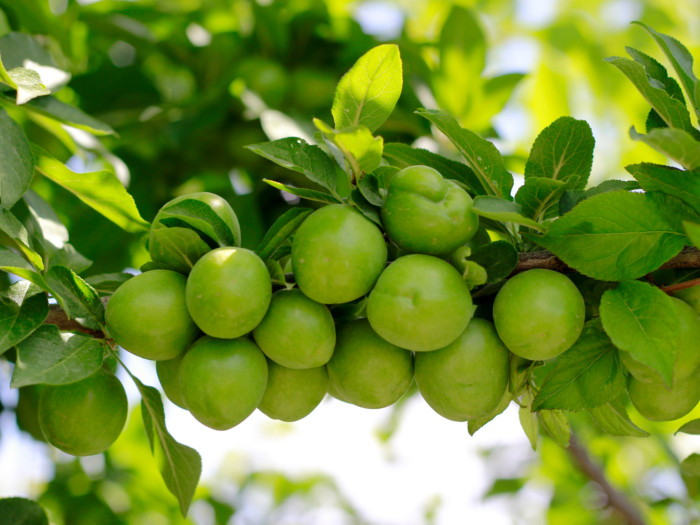Adding Kakadu plums to your diet can help improve overall health and protect the immune system, so knowing more about this exotic fruit is important!
What are Kakadu Plums?
Kakadu plums are the fruit of the Terminalia ferdinandiana [1]tree and are also widely known as salty plum, green plum, mador, murunga, gubinge, and billygoat plum, among others. Native to Australia, this fruit is highly sought after due to its incredibly high vitamin C content. This fruit has been used as both a medicinal and culinary element in the culture of Australia’s aboriginal people.
It is still primarily cultivated in Australia, although you can sometimes find it in exotic fruit and import stores. These plums are very small, about the size of an almond, and are light-green in color. They contain a single seed and the flavor of the fruit is very tart. The bark and sap from this tree are also used for medicinal applications.

Sauces, jams and skincare products are made of kakadu plum. Photo Credit: Shutterstock
Nutritional Facts
Most notably, Kakadu plums are rich in vitamin C, with some examples having as high as 5,000 mg/100 grams, which is 100 times more concentrated than common oranges. These plums also possess calcium, potassium, phosphorus, magnesium, and sodium in moderate quantities. 100 grams of this fruit also only has 21 calories and a decent amount of dietary fiber.
Health Benefits
The key health benefits of Kakadu plums include the following:
- Boosting the immune system
- Preventing acne and pimples
- Improving cardiovascular health
- Improving the appearance of the skin
- Weight loss
- Promoting digestion
- Reducing wrinkles
- Haircare
- Anticancer potential
With high levels of antioxidants and a massive boost of vitamin C, this fruit can help to prevent oxidative stress throughout the body and protect against all types of infections and pathogens. The low-calorie and high-fiber nature of this fruit also mean it can help with weight loss and digestive issues. Studies have found that regular consumption of this fruit and also the leaves of the tree can lower your risk of cancer as they have antiproliferative properties. [2] [3] [4] [5]
Uses
This plum is used in a number of forms but is primarily eaten raw in Australia.
- The fruit can be dried and ground into a vitamin C powder.
- The plums can be juiced for a nutrient-dense drink.
- Even the oils from the seed of this plum can be extracted and used for medicinal purposes.
Side Effects: There are no known side effects of the Kakadu plum when eaten in moderation. However, excessive consumption of Kakadu plum can lead to diarrhea or nausea. [6]
